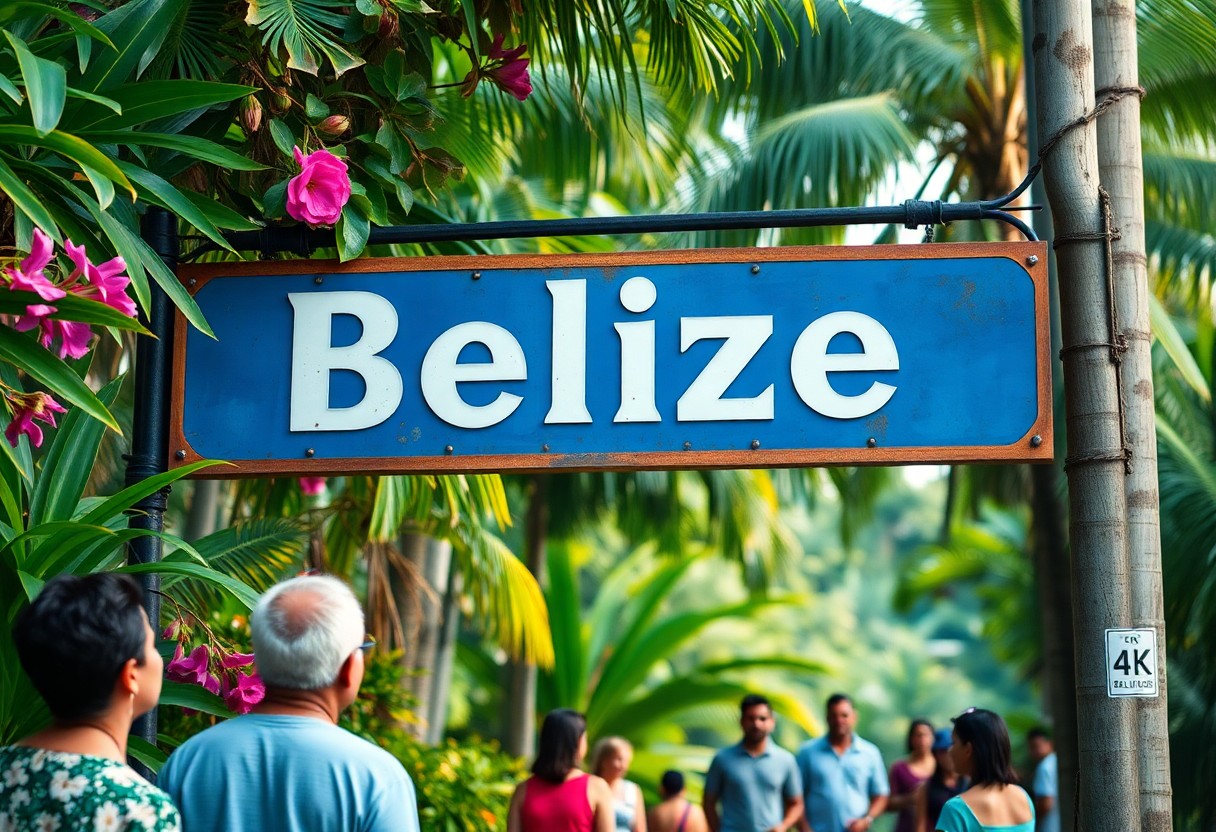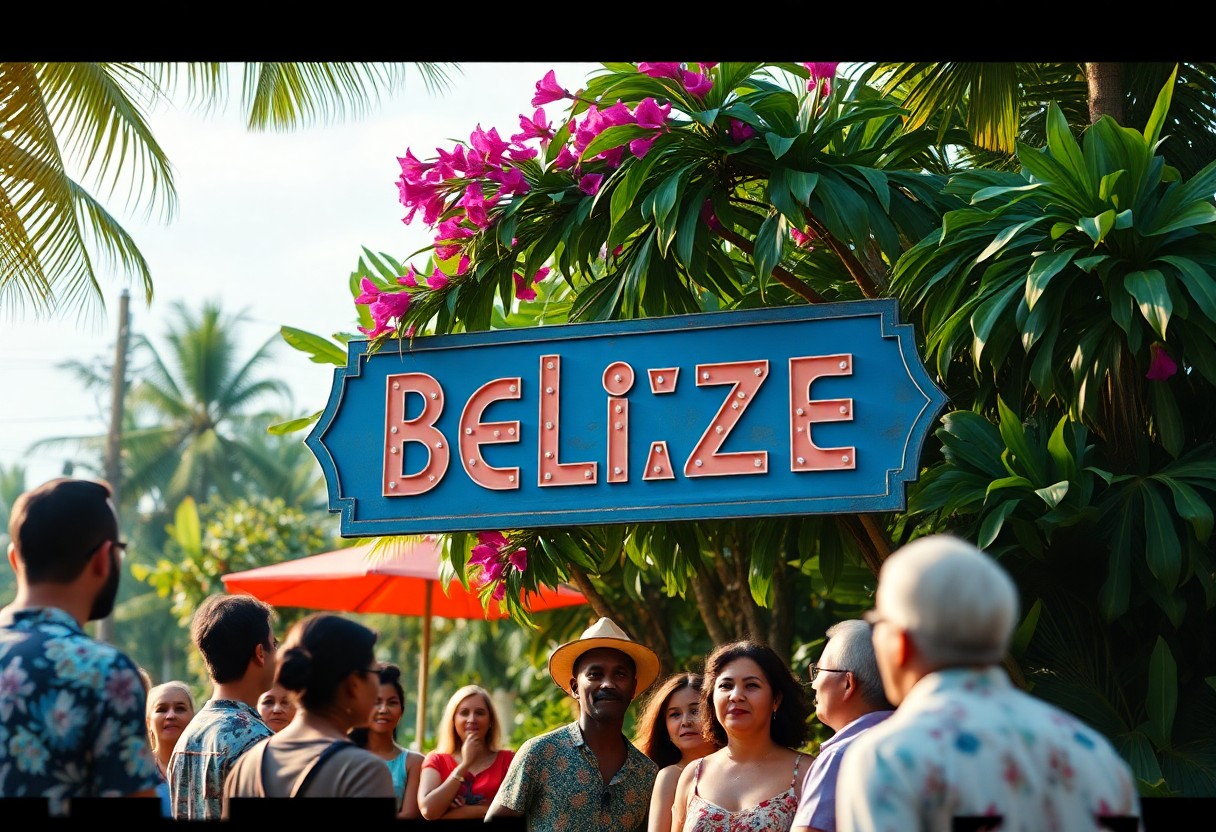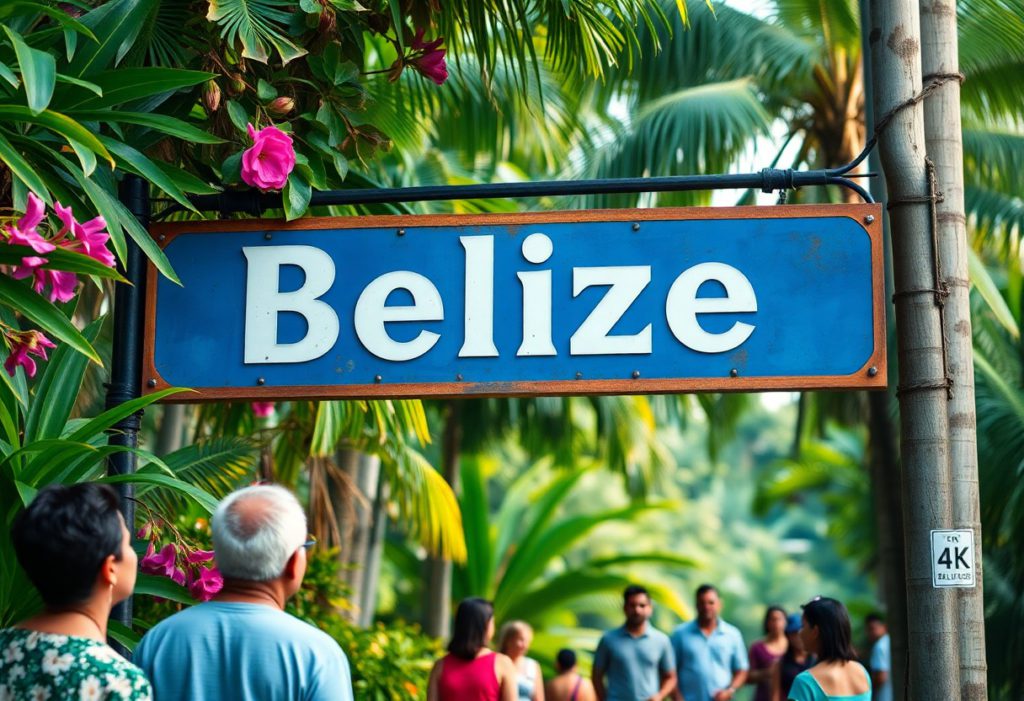Many individuals often grapple with the correct pronunciation of this stunning Central American nation’s name. You may have encountered various attempts, but the accurate pronunciation is “beh-LEEZ”, not the mispronounced “buh-LIZE” or “beh-LIZE.” Your quest for clarity ends here, as this comprehensive guide is crafted to assist you in confidently articulating the name of this captivating tropical destination. Mastering the correct pronunciation will not only enhance your communication abilities but also reflect your respect for the local culture and the beautiful languages spoken within the region, enriching your interactions with locals and fellow travellers alike.
Master Common Mispronunciations of Belize Effectively
Before diving into the intricacies of pronouncing “Belize,” it’s essential to familiarise yourself with the most common errors people frequently make. Mispronunciations can vary from subtle differences to entirely incorrect versions, which may inadvertently reveal your unfamiliarity with the country’s rich linguistic heritage. Being aware of these prevalent mistakes will empower you to articulate the name more effectively and with greater confidence, allowing you to engage with the culture and its people on a deeper level.
Clarifying the Distinction Between “Beh-leez” and “Beh-lize”
If you find yourself unsure about the correct pronunciation, you may often get caught between two prevalent variations. The incorrect versions generally place emphasis on different syllables, which can lead to misunderstandings among both native speakers and linguistic professionals. Recognising these phonetic distinctions is crucial for effective communication and bridging cultural gaps, ensuring that your conversations are both clear and respectful.
Understanding the Misguided Pronunciation of “Bee-lease”
This variation represents a stark departure from the correct pronunciation, straying significantly from the true articulation of the name. This particular mispronunciation illustrates a fundamental misunderstanding of the word’s linguistic roots and its cultural significance. Understanding these errors can enhance your appreciation for the language and the people of Belize, deepening your connection to this vibrant nation. Paying attention to such nuances fosters a greater respect for the local heritage and traditions.
Understanding pronunciation nuances like “Behlize” adds another layer of complexity when learning how to pronounce the name of this country accurately. Paying close attention to the subtle differences that define authentic pronunciation is essential. Native speakers typically employ a specific intonation that captures the word's essence, emphasising the initial syllable with a gentle ‘beh’ sound, followed by a distinct ‘leez’ ending, creating a fluid and harmonious sound that resonates with the local dialect.
Delve into the Historical Origins of the Name “Belize”
If you’re curious about the linguistic origins of “Belize,” the name boasts a captivating historical journey that intertwines indigenous and colonial influences. The etymology of the term is intricate, reflecting the rich cultural tapestry woven into the identity of this Central American nation. Understanding the name's origins enhances your connection to the place and its history, offering insights into the diverse influences that shaped its identity over the centuries.
Investigating Potential Mayan Influences on the Name
One theory posits that the name “Belize” may have roots in <a href=”https://xamanekbelize.com/belize-s-diverse-ethnic-heritage-and-society/”>Mayan linguistic heritage</a>, potentially originating from the Mayan word “belix,” which could translate to “muddy waters” or reference a specific river tributary. This linguistic connection underscores the deep indigenous heritage that is embedded within the nation’s naming conventions and cultural identity, highlighting the significance of indigenous languages in shaping the country’s historical narrative.
The Influence of Colonial History on Pronunciation
European interpretations have influenced the evolution of the name through Spanish and British colonial interactions. This linguistic transformation occurred as European settlers encountered and documented the region, gradually adapting indigenous names and terms to fit their own linguistic frameworks, altering the pronunciation significantly through their interpretations. This interaction has left an indelible mark on the language and culture of Belize, creating a unique blend of influences.
Understanding the Dynamics of Colonial Naming Variations
Variations in the name emerged during colonial periods, with Spanish explorers and British settlers providing different phonetic renditions. The British colonisation notably impacted the current pronunciation, transforming indigenous phonetics into a more anglicised version that we recognise today as “Belize.” This shift reflects the broader historical context of colonial influence on language, showcasing how colonialism has shaped linguistic identities in the region.

Essential Techniques for Mastering the Pronunciation of Belize
While mastering the pronunciation of Belize may seem challenging, numerous helpful strategies can assist you in sounding like a local. Consider incorporating these key tips into your practice to enhance your clarity and confidence when speaking:
- Emphasise the initial syllable for clarity and impact
- Utilise a soft “z” sound for accuracy to align with local pronunciation
- Avoid common mispronunciation pitfalls by being mindful of syllable stress
Recognising and perceiving these nuanced sounds will empower you to articulate the country’s name with confidence and authenticity, fostering deeper connections with those you encounter.
Phonetic Breakdown for Enhanced Clarity
When breaking down the word phonetically, you will find that “Belize” is pronounced as “buh-LEEZ.” The stress accentuates the second syllable, creating a rhythmic and fluid sound that encapsulates the linguistic essence of this vibrant Central American nation. This clear phonetic structure allows for easier learning and understanding, especially for non-native speakers.
Comparative Insights: Local Creole Versus Standard English Pronunciation
There exist slight variations between the local Creole pronunciation and that of standard English when articulating Belize. However, the fundamental pronunciation remains consistent across diverse linguistic contexts, allowing for a degree of familiarity for English speakers. To better understand the linguistic nuances of Belize, it’s important to recognise that local Creole may introduce subtle accent variations. Native speakers often blend elements of English, Spanish, and Creole, resulting in a rich linguistic tapestry that reflects the country’s diverse cultural heritage and history.
Here’s the content for your blog post sections:
Key Factors Influencing the Pronunciation of Belize
Unlike straightforward language rules, the pronunciation of “Belize” is influenced by multiple linguistic elements. Several critical factors impact how you articulate this word, creating a rich tapestry of pronunciation:
- Linguistic background of the speaker, which shapes their phonetic understanding
- Personal exposure to the language, influencing familiarity and comfort
- Regional dialect variations, showcasing the diversity of language
- Language learning experience and practice, crucial for mastering pronunciation
Recognising these nuances will help you understand the complexity behind the pronunciation of this name and improve your communication skills, allowing for authentic engagement with Belizeans.
Exploring Regional Variations in Pronunciation
Variations in pronunciation can be observed across different geographical regions. You may notice subtle differences between North American, Central American, and British English speakers. These regional distinctions can significantly influence how “Belize” is pronounced in everyday conversations, showcasing the diversity of language and cultural expression across different communities.
The Crucial Role of Cultural Context in Pronunciation
Cultural understanding plays a significant role in pronunciation variations. Your familiarity with Belizean history and its rich linguistic traditions can greatly influence how authentically you articulate the name. Pronunciation is more than phonetic accuracy; it is a reflection of a rich cultural heritage. When you pronounce “Belize,” you engage with the country’s diverse linguistic landscape. Native speakers appreciate it when you approach the pronunciation with respect and a genuine interest in their cultural nuances, fostering goodwill and mutual understanding.
Analyzing the Advantages and Disadvantages of Correct Pronunciation
To grasp the implications of accurately pronouncing “Belize,” let’s explore the benefits and potential challenges through a thorough breakdown. Understanding these factors will enhance your linguistic experience:
| Advantages of Correct Pronunciation | Challenges of Incorrect Pronunciation |
|---|---|
| Demonstrates linguistic respect and cultural sensitivity | May lead to initial awkwardness in conversations |
| Enhances clarity in communication and understanding | Could confuse some listeners unfamiliar with your accent |
| Shows cultural awareness and appreciation for local customs | Requires dedicated practice to master |
| Improves overall language skills and pronunciation accuracy | Involves a small learning curve for newcomers |
Demonstrating Cultural Respect through Pronunciation
If your goal is to show genuine respect for Belizean culture, mastering the correct pronunciation is more than just a linguistic challenge. It reflects your commitment to understanding and honouring the local linguistic traditions, thereby deepening your connection with the culture. Such dedication will foster positive interactions and build rapport with those you meet.
Ensuring Clarity in Communication with Proper Pronunciation
Although pronunciation may appear to be a minor detail, accurate articulation is key to preventing misunderstandings and facilitating more effective communication with native speakers. By mastering the nuances of “Belize,” you will be able to navigate conversations with confidence, making your interactions more meaningful and enriching.
By pronouncing the name correctly, you signal your cultural sensitivity and linguistic competence, which can lead to more meaningful interactions and deeper connections with the people of Belize, enhancing your overall travel experience.

Your Comprehensive Step-by-Step Pronunciation Guide to Belize
Now, let’s break down the pronunciation of “Belize” with a straightforward, step-by-step guide. To help you master this pronunciation, here’s a detailed table that will walk you through each step, enhancing your learning experience:
| First Syllable | buh |
| Second Syllable | leez |
In-Depth Breakdown of Each Syllable for Clarity
Understanding the syllables is crucial for accurately pronouncing “Belize.” The first syllable, “buh,” is soft and brief, while the second syllable, “leez,” features a sharp, clear sound that should be emphasised for correctness. This differentiation helps in achieving the correct pronunciation and aids in communication.
Effective Practice Techniques for Mastery of “Belize”
If you are aiming to perfect your pronunciation, start by articulating each syllable separately before blending them together. Engaging in slow, deliberate practice will build your confidence over time. Regularly repeating the syllables will reinforce your memory and aid in embedding the correct pronunciation in your mind.
You can utilise audio resources like language learning applications or pronunciation videos to listen to native speakers. Listening and repeating is an excellent method for training your ear and mouth to produce the correct sounds. Consider recording yourself and comparing your pronunciation with that of native speakers to monitor your progress effectively, ensuring you stay on track with your learning goals.
Final Thoughts on Perfecting the Pronunciation of Belize
From this information, you now possess a deeper understanding of the nuanced pronunciation of Belize. Whether you choose to adopt the American “BELL-eez” or the local Belizean “beh-LEEZ,” your choice signifies cultural awareness and linguistic respect. With this knowledge, you can confidently engage in conversations about this Central American nation, appreciating the subtle variations in pronunciation. By mastering these pronunciation tips, you demonstrate linguistic sensitivity and an appreciation for regional speech patterns. Your newfound knowledge will ensure you sound informed and culturally attuned when referencing this vibrant and beautiful country.
Frequently Asked Questions about Pronouncing Belize
What are the two primary pronunciations of “Belize”?
The two standard pronunciations are “buh-LEEZ” (most common in North America) and “beh-LEEZ” (preferred by many Belizean natives). Both pronunciations are considered acceptable linguistically, with the first variant being more prevalent internationally, reflecting the diverse linguistic influences on the name.
Do pronunciation differences exist between English and Spanish speakers?
Yes, Spanish speakers typically pronounce Belize as “beh-LEE-seh,” featuring a softer ending, while English speakers generally use “buh-LEEZ,” which has a more distinct “z” sound. These linguistic variations arise from regional phonetic patterns inherent in each language, showcasing the rich diversity of linguistic expression.
What factors contribute to the existence of pronunciation variations for this country’s name?
Pronunciation differences stem from historical linguistic influences, including the impact of British colonial heritage, indigenous Mayan language roots, and Spanish colonial effects. The complex linguistic landscape of the country contributes to multiple accepted pronunciation methods, reflecting its rich multicultural history and the interplay of various languages.
The Article How to Pronounce “Belize” Correctly: A Quick Linguistic Guide appeared first on Belize Travel Guide
The Article Pronounce “Belize” Correctly: A Quick Linguistic Guide Was Found On https://limitsofstrategy.com



It’s interesting how the name “Belize” can spark such a wide range of pronunciations! Getting it right not only shows respect for the culture but adds an extra layer of connection when interacting with locals. When I travelled to Belize, I noticed how helpful it was to engage authentically with the community. Even a simple effort, like pronouncing a name correctly, can bridge gaps between cultures and invite deeper conversations. It makes me think about how little things, such as mastering a word or phrase, can foster understanding and appreciation in our increasingly interconnected world. Have any other readers experienced similar moments while learning about a different culture?